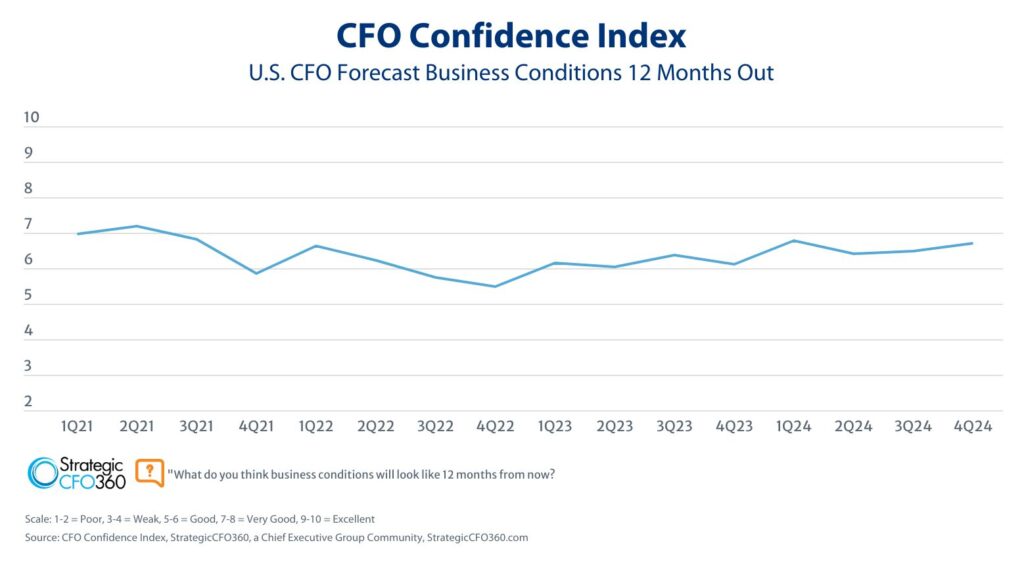 It was only nine years ago that the Tesla Model S launched to great fanfare from environmentalists…and a collective yawn from the traditional auto industry.
It was only nine years ago that the Tesla Model S launched to great fanfare from environmentalists…and a collective yawn from the traditional auto industry.
Fast forward to today and the electric vehicle maker’s market cap nearly equals that of all major automakers that produce in North America — combined. It’s even possible we’ll never see a new generation of the internal combustion engine.
This dizzying pace of change is only going to accelerate in the coming years. Technological advancements, shifting government policies and pressure from consumers and investors are hastening the move toward total electrification.
Sound familiar? These pressures aren’t unique to the auto sector.
CFOs in every industry are being challenged to increase the value of their companies amid rapid technological change. Their ability, and agility, will be the biggest deciding factor in whether their companies are valued at 5-to-6 times EBITDA — or 15-20 times or more.
Showing the way
To some extent, the auto industry is showing them the way. In one clear example, the Biden administration’s renewed focus on climate change is pushing the industry hard in the direction of environmental sustainability. No automaker or auto supplier will survive without a fairly dramatic pivot toward electric drive technology. Their major investments in environmental sustainability can provide a roadmap for other sectors, as well as the sector’s acceptance of special-purpose acquisition companies (SPAC).
CFOs in all industries need to take a page from their auto industry peers by fundamentally rethinking the way they evaluate future growth and make financial decisions. And they need to forecast farther out than they may be used to — at least 10 years and even more.
Without that long-term vision, it’s hard to drive consensus around the type of tech investments that should be made now, but which may not bear fruit for another decade.
Getting comfortable with risk
CFOs will need to become more comfortable with risk and to make more decisions based on strategic considerations, rather than traditional metrics that focus on near-term return on investment, payback or NPV. If not, their companies may pass over crucial investments as too risky or unclear.
In the auto industry, manufacturers are already investing around the next stage of autonomous driving that will require satellite communications to provide more accurate data and better traffic connectivity. And with the multiyear runway that’s required to produce new vehicles, auto industry CFOs have the ability to use their built-in line of sight in new programs to look into the future.
Making space for SPACs
Auto sector CFOs are arguably more finely attuned to harnessing investors’ demand for innovation than many of their peers. The electric vehicle investment boom in SPACs is a prime example. Auto tech start-ups listing through this route now have a market cap of about $60 billion, despite a lack of current revenue or even products on the road in many cases.
To be sure, the SPAC route will not fit all companies. It’s risky and often requires ceding control to investors at an uncomfortable degree for some.
The bigger lesson CFOs can learn from auto industry SPACs, however, is how investors are flocking to innovative companies that are promising to solve big technological and environmental issues and reshaping the future of vehicles.
The ‘E’ in ESG
Auto companies have also been smartly strategic about harnessing another vital market trend — the surge in ESG (environmental, social and governance) investments. While it’s easy to lump together the three elements, companies should, in most cases, focus more on the “E”. Returns on investments in environmental initiatives can be measured more explicitly than improvements in social or governance outcomes.
For the auto industry, the “E” is the driving force behind the transition to electric. It’s also attracted most of the interest from investors. The environmental focus of the new U.S. administration — which signaled its commitment by rejoining the Paris Climate Accord on day one — will likely accelerate the trend.
Over the next four years, Biden administration emission policies and programs will likely encourage automakers’ transition to electric vehicle technology. But unlike many industries, this sector has already started to shift capital investment and R&D focus. Tesla is one prominent example, but there are many others.
CFOs who seek to boost the value of their companies through technology, position their companies for the future and subsequently gain the interest of the investment world, are well served by observing how their auto peers have positioned their companies to move ahead of technology trends.








